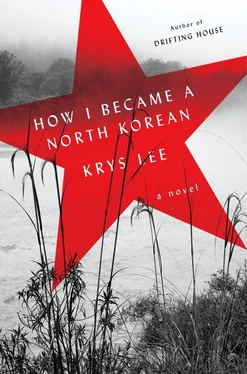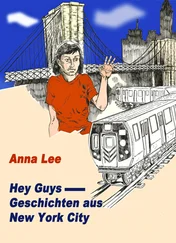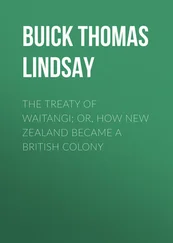I sat upright. Imagined her hands cradling my head, my neck. “Do you want your pillow back?”
“What pillow?” she said scornfully.
We sat in silence. Suddenly she laughed, and her hands fluttered up and covered her mouth. Her laugh, her gesture, moved through me as real and necessary as water or sleep.
“You’re a good person,” she said. She sounded surprised by herself. Then she leaned in and I smelled the sweet sesame of her breath. “My baby — she never even had a name.”
• • •
Soon we had a second intruder, a white man who Missionary Kwon called an ally of our people. Still, we shrank from the tall American who ducked to pass through the front door. I assumed all white people were Americans. The man had a thin, ungenerous nose and an overdeveloped torso, like a tree stump. He took off his black cap and sunglasses and said, “I’ve been so eager to meet all of you.”
His eyes were the color of grass. He wasn’t my first white man; there were times in Pyongyang when people parted at a white man’s approach, afraid to attract attention by looking at him, and I’d seen plenty of them in smuggled movies.
“Say hello to our guest.” There was a warning in Missionary Kwon’s voice.
The man’s broad smile didn’t drop away and he waved both hands in the air to show that he was harmless. But he was a stranger and a foreigner, and only Daehan and I managed to greet him in formal Korean.
The white man addressed us with the honorific form in pristine Korean and bowed, confusing us. We were young, we were refugees — used to pity but never respect — we were the ones who should be bowing. I found myself bowing back, a situation so absurd that I laughed. But this only angered me. Laughing, when everyone I loved was gone.
All around me the murmurs began. “White man, white man.”
“Matthew’s an American raised in South Korea. He’s an ally of yours — a friend.” As usual, Missionary Kwon gave us a skeletal explanation. “I expect you to tell him all about your lives and answer his questions.”
“I’m not eating at a table with a long-nose,” Bakjun said, standing to his full height, at age sixteen no bigger than ten-year-olds I would see in the South.
“Nonsense.” Missionary Kwon was firm. The American was a journalist and the son of Missionary Kwon’s good friend. “Matthew’s father came as a missionary himself to South Korea several decades ago and is now one of the country’s best pastors. His family’s practically Korean.”
This man drew back at the mention of his father.
“Too good,” he said in perfect Korean, and laughed hoarsely. “He’s a hard man to live up to.” It hurt to think that I could never be a better son for my abeoji .
The stranger’s head tilted toward each of us as he presented himself as a friend to all. He bowed awkwardly in every direction, his sloppy smile spilling into the room. But he, like everyone else in China, wanted something from us.
That night, terse fragments drifted out from Missionary Lee’s room.
“A white man, and a journalist!” said Missionary Lee sharply, and he was never sharp. “That’s dangerous, dangerous for all… He’ll be all over their lives — they’ve been… he could expose them. We’re here to do God’s work, not to sell stories.”
“Part of the Lord’s work is letting people know what’s happening in that dark country,” said Missionary Kwon. “Matthew will live here, no one will see him; he’s going to write… and with the donations we’ll have coming in…”
“There’s enough money.”
“You know nothing.” Missionary Kwon’s voice rose, but only a little. “Where’s the windfall going to… The sky? The trees? Trees don’t pay for my shelters.”
“God, God will provide,” Missionary Lee said. “If we don’t believe that, what do we have?”
Missionary Kwon wasn’t present the next morning. Neither was Missionary Lee, who felt ill and stayed in bed. There was only this Matthew.
The journalist Matthew was deft — too deft — at handling our suspicion and unease and the sneaking stares at the light brown fuzz, like that of a deer’s antlers, that seemed to cover every part of him. He called it his animal hair, tugging at a crinkly strand as he smiled. None of it unnerved him.
He waited. He ate our food with exaggerated relish, popping a spicy strand of kimchi into his mouth at breakfast as if to show us: I’m like you . He regaled us with stories about being a white man in Asia, though the boys probably only listened so they could skip studying. He passed out exotic sweets and played soccer with them, impressing Namil by keeping the deflated ball aloft for more than a hundred kicks, bouncing it from ankle to knee to hip to head. It wasn’t hard to like him. Only later did he maneuver us to the storage room, one at a time, and, wedged between the sacks of beans and cans of ham, retrieve our stories from us.
When it was my turn, he cajoled and waited as I fled, avoided him, then reluctantly returned. He was armed with Missionary Kwon’s directive: Ask them anything you want, anything. He knew how to be patient; he sympathized, he prodded with his florid language. To tell was to remember and to remember was to relive, but I had little choice. I cooperated. We all did, except for Jangmi, who refused to be interviewed.
We sat in a messy circle with Matthew on his last afternoon, waiting for the dipping creak of the front door, the particular music of Missionary Kwon’s arrival. Matthew massaged the pocket stitching of his slacks and said to us, but really to Jangmi, “I was the only white person in a class of forty-five South Korean high schoolers. You been to high school?” He continued. “Mine was on Jeju Island! You ever heard of Jeju Island?”
He told her about the place, an island surrounded by azure sea, full of lava tubes and sunflowers, with a dormant volcano in the middle. South Koreans had always honeymooned there, though the well-off now headed to Europe or to tropical countries. He glanced down the hall. He must have known that the missionaries didn’t like South Korea spoken of around us because they said it made us restless. “Where did you grow up? Was it beautiful there, too?”
A tremor passed through her as if her past was moving through her and taking hold, demanding payment.
“I know it’s difficult for you. I won’t use your name or your face. Your story’s important — it’s the only way to stop the abuses you’ve suffered in China from happening.”
That may have been true, but Jangmi wasn’t ready to speak.
“Nothing happened to me,” she said. “I crossed a river and lived in a room. And now I live in another room.”
The journalist crouched close to her, his green eyes turning filmy in the reflected light. “Missionary Kwon told me where he found you. It must be so hard. Let me help you.”
Though he was my senior in all ways, I set my hand down on the journalist’s shoulder so that he couldn’t lean in any closer to Jangmi. “Can’t you see she doesn’t want to talk to you?”
Matthew raised his arms high into the air. “Look, I’m a good guy, really.”
She sought my other hand, laying hers lightly across mine.
“Do people like me get to go to your country?” Her question made even Cheolmin freeze.
“My country?” Matthew smiled. “If you mean America, actually, yes,” he said, his voice lowered. “Once you’re out of China, you can apply to live in a number of different countries. Japan, Norway, South Korea, America, you name it. It’s called asylum.”
“You know people, important people,” she said. “If you wanted to, you could help us. The longer we’re in China, the more dangerous it is for us. You know that.”
Читать дальше












